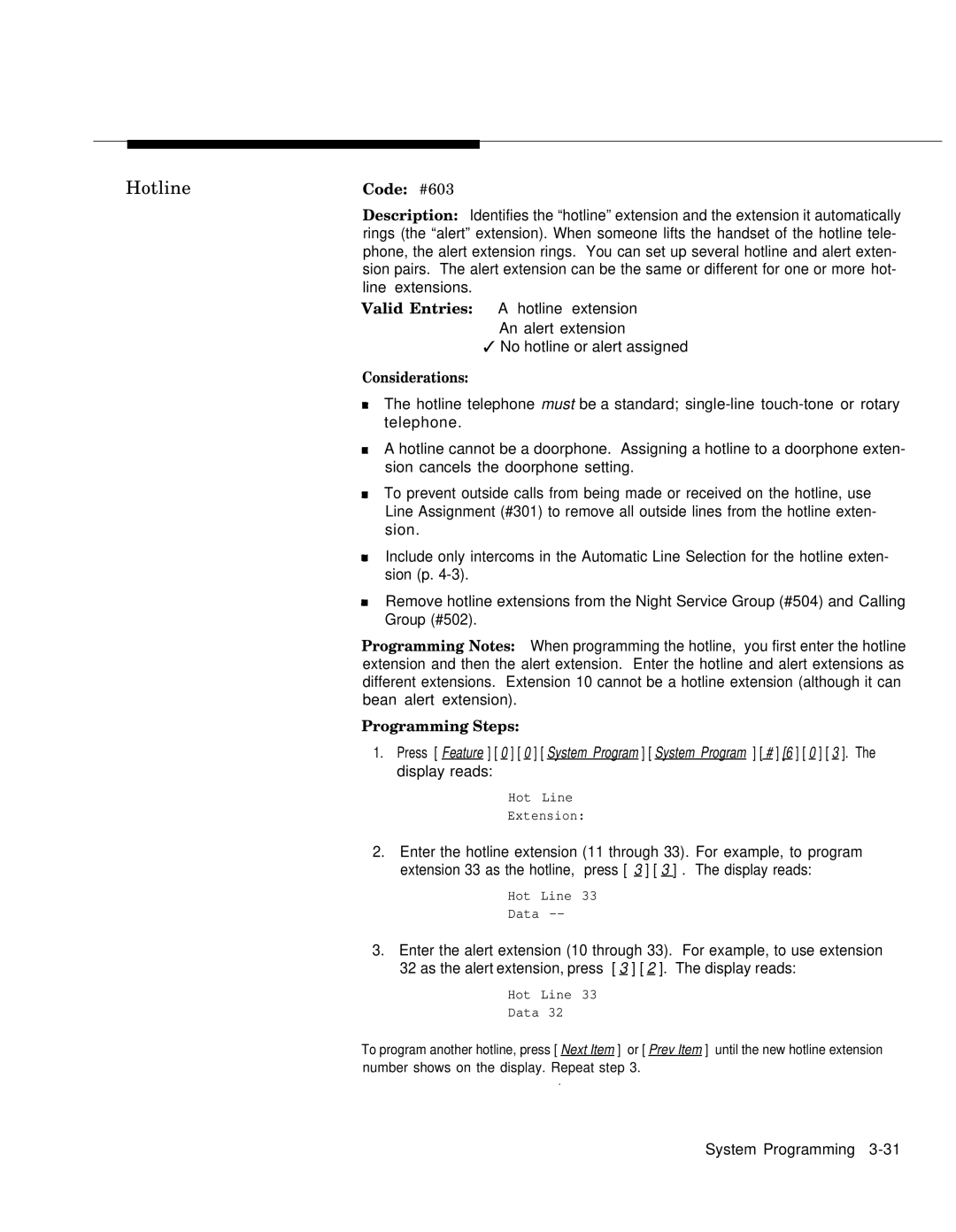
Hotline | Code: #603 |
Description: Identifies the “hotline” extension and the extension it automatically rings (the “alert” extension). When someone lifts the handset of the hotline tele- phone, the alert extension rings. You can set up several hotline and alert exten- sion pairs. The alert extension can be the same or different for one or more hot- line extensions.
Valid Entries: A hotline extension An alert extension
✓No hotline or alert assigned
Considerations:
The hotline telephone must be a standard;
A hotline cannot be a doorphone. Assigning a hotline to a doorphone exten- sion cancels the doorphone setting.
To prevent outside calls from being made or received on the hotline, use Line Assignment (#301) to remove all outside lines from the hotline exten- sion.
Include only intercoms in the Automatic Line Selection for the hotline exten- sion (p.
Remove hotline extensions from the Night Service Group (#504) and Calling
Group (#502).
Programming Notes: When programming the hotline, you first enter the hotline extension and then the alert extension. Enter the hotline and alert extensions as different extensions. Extension 10 cannot be a hotline extension (although it can bean alert extension).
Programming Steps:
1.Press [ Feature ] [ 0 ] [ 0 ] [ System Program ] [ System Program ] [ # ] [6 ] [ 0 ] [ 3 ]. The display reads:
Hot Line
Extension:
2.Enter the hotline extension (11 through 33). For example, to program extension 33 as the hotline, press [ 3 ] [ 3 ] . The display reads:
Hot Line 33
Data
3.Enter the alert extension (10 through 33). For example, to use extension
32 as the alert extension, press [ 3 ] [ 2 ]. The display reads:
Hot Line 33
Data 32
To program another hotline, press [ Next Item ] or [ Prev Item ] until the new hotline extension
number shows on the display. Repeat step 3.
.
System Programming
